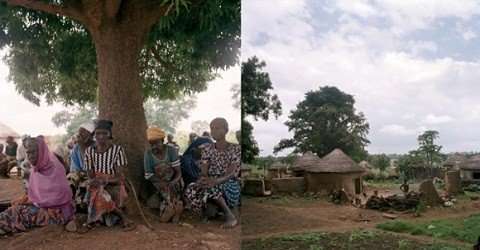Government to shut down Gushegu Witch Camp

The Ministry of Gender, Children and Social Protection is working towards the possible closure of the Gushegu Witch Camp in the North. Nana Oye Lithur, sector Minister said the practice of witchcraft accusation in Ghana was a breach of especially human rights, and it inhibited the rights to life, liberty and security. She said the government and other stakeholders would continue to work to ensure the full and total liberation of alleged witches in all the camps. Nana Oye Lithur made these remarks in her address on Tuesday in Accra at the Ministry’s Midterm Review of Ghana’s Gender Agenda. The meeting brought together stakeholders from both the public and private sectors, civil society orgainzations and gender-based institutions, for the review process. She said the practice of witchcraft accusation also constrained the right to be treated with humanity and respect. The Minister recounted that the first- ever National Conference on Witchcraft Accusation was held in Accra on December 10, last year, for the country to build a national consensus on the underlying causes and issues surrounding the phenomenon of witchcraft accusation and to chart a way forward for eliminating it. She said the conference on the theme “Protecting the Vulnerable: Witchcraft Accusations and Human Rights Abuse in Ghana,” gathered public support to end the practice. She said in some parts of northern Ghana, persons accused of possessing witchcraft powers were often removed from their homes and families and ostracized into camps at the outskirts for the purpose of taming their powers and eventually healing them. Nana Oye Lithur noted that these secluded abodes had become known in Ghana as “witch camps”; declaring that “Ghana is the only country in the world that has witch camps.” She said there were six identified witch camps housing a total of about 681 witches, and all these camps were in the Northern Regions, adding that of this population, females accounted for an overwhelming majority. Nana Oye Lithur said after an agreement with the local traditional authorities, the Ministry in collaboration with ActionAid closed down the Bonyase Witch Camp. She said in addition to the three inmates of that camp, over 50 women from other camps across the region were re-integrated into communities of their choice. She said after the closure, sustainable measures spearheaded by organizations like ActionAid, Ghana, had been adopted to ensure the rights of the victims to live freely and help in their re-integration. “We have begun paying Livelihood Empowerment Against Poverty (LEAP) benefits to inmates of witch camps. “As at the last payments, a total of 751 alleged witches in Gambaga, Kukuo, Nabuli, Kpatinga, Leli-Daberi and Ngnani-Yendi received cash transfers under LEAP,” she stated. Nana Oye Lithur observed that: “the Ministry has already advanced plans to extend social protection support under the MASLOC Credit Scheme and the LESDEP Skills Building programmes to them. “Both rescued victims and inmates of the various camps are being enrolled on the National Health Insurance Scheme to enhance their access to healthcare.” On Female Genital Mutilation (FGM), the Minister said its prevalence rate of female genital mutilation was at an all-time low of 3.8 per cent, stating that this rate was the fourth lowest on the African continent. She explained that Ghana had achieved this feat through criminalization and advocacy. She said Act 484 of 1994 criminalized the practice with a three-year jail sentence, noting that despite this, women continued to suffer from the practice and its attendant health issues, such as obstetric fistula which obstructs and prolongs labour. She said the Ministry in collaboration with a team of doctors had been able to facilitate fistula repairs for 82 women from four regions, namely, the Upper East, Upper West, Volta and Central. Nana Oye Lithur said regional advocacy and sensitization durbars on fistula and female genital mutilation had been held in these regions. She said the Ministry had also been able to provide support to victims of such harmful cultural practices, adding that work was earnestly progressing towards eradicating such practices. Dr Rose Mensah-Kutin, the Director, ABANTU For Development, who chaired the function, said the year 2015 was a milestone year in the context of development issues not only at the global level, but for Ghana as well. She mentioned some of the significant achievements as the world marking the 20th anniversary of the Beijing Declaration and Platform for Action and the worldwide review of progress made in the implementation of this blue print for women’s empowerment and gender equality had been undertaken.
Created at 2015-11-05 03:13
Back to posts
This post has no comments - be the first one!
UNDER MAINTENANCE



